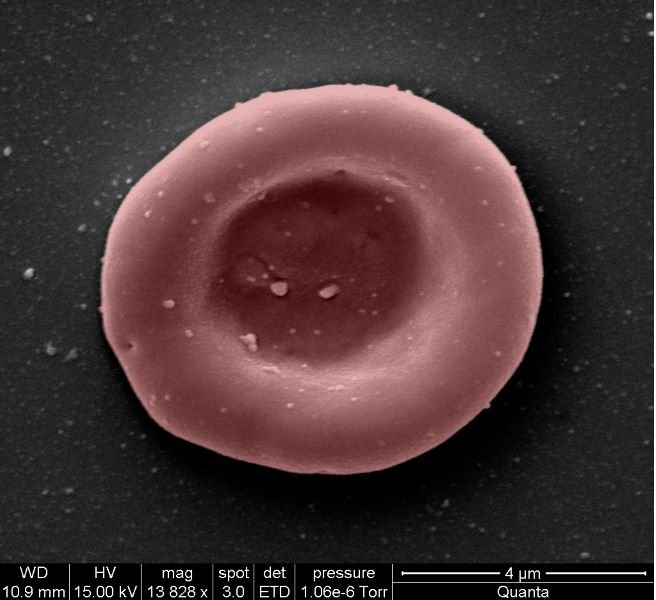Yvonne Smith is one of the first people to be transfused with red blood cells grown in a laboratory - part of a world leading trial involving Addenbrooke's.

I would encourage anybody to do it. There’s nothing to fear.
Yvonne Smith, 69, from near Bury St Edmunds in Suffolk, is one of the first two people to receive red-blood cells in the world leading RESTORE trial.
She was selected for the trial through the NIHR BioResource Centre Cambridge (opens in a new tab), which has more than 17,000 volunteers.
This is the first time in the world that red blood cells that have been grown in a laboratory have been given to another person in a blood transfusion.
NHS Blood and Transfusion (NHSBT) announced the trial was underway in November and Yvonne is the first recipient to be named.

You are just getting a little bit of blood and it’s going to help other people.
Yvonne received two injections of up to 10mls of red blood cells, both originating from the same donor.
One injection contained red blood cells that grew naturally in the donor. The other injection contained red blood cells that had been grown in a lab from some of the same donor’s stem cells.
Yvonne does not know which injection was which. She received regular follow ups to check the health of the transfused red blood cells and her own health.
Yvonne was previously a blood donor herself, making about 60 donations, however she is no longer able to donate herself after a case of breast cancer in 2014.
She said:
“I thought ‘what else can I do?’ I ticked a box and put my name forwards for research.
“I always wanted to be a nurse so it felt normal to help. Years later I was asked about taking part in the RESTORE trial.
“I wasn’t worried about getting the blood that was grown in the lab. They explained everything to me. They wouldn’t be doing it if there was a good chance something would go awry. It was straight forward."

We are immensely grateful to our trial participants. Without them, this clinical trial would never see the light of day.
Co-chief investigator Cedric Ghevaert, consultant haematologist at CUH and professor in Transfusion Medicine at University of Cambridge.
Professor Cedric Ghevaert, is co-chief investigator on the trial and a consultant haematologist at Cambridge University Hospitals NHS Foundation Trust (CUH) and NHS Blood and Transplant. He said:
"We hope our lab-grown red blood cells will last longer than those that come from blood donors.
"If our trial, the first such in the world, is successful, it will mean that patients who currently require regular long-term blood transfusions will need fewer transfusions in future, helping transform their care."
If proved safe and effective, manufactured blood cells could in time revolutionise treatments for people with blood disorders such as sickle cell and rare blood types.
It can be difficult to find enough well-matched donated blood for some people with these disorders.
Yvonne said:
“I am not squeamish. The injections were into my arm on the side of the elbow, where you donate blood. I couldn’t tell which one injection was the lab grown blood.
“I know the research could help people with sickle cell and other diseases where it’s difficult to find matching blood. Otherwise those people have a raw deal.
“So why wouldn’t you do it? I hope just hope some good comes from it.”
More about RESTORE trial
The trial is studying the lifespan of the lab grown cells compared with infusions of standard red blood cells from the same donor.
The lab-grown blood cells are all fresh, so the trial team expect them to perform better than a similar transfusion of standard donated red cells, which contains cells of varying ages.
The trial is the first step towards making lab grown red blood cells available as a future clinical product.
For the foreseeable future, manufactured cells could only be used for a very small number of patients with very complex transfusions needs.
NHSBT continues to rely on the generosity of donors.


